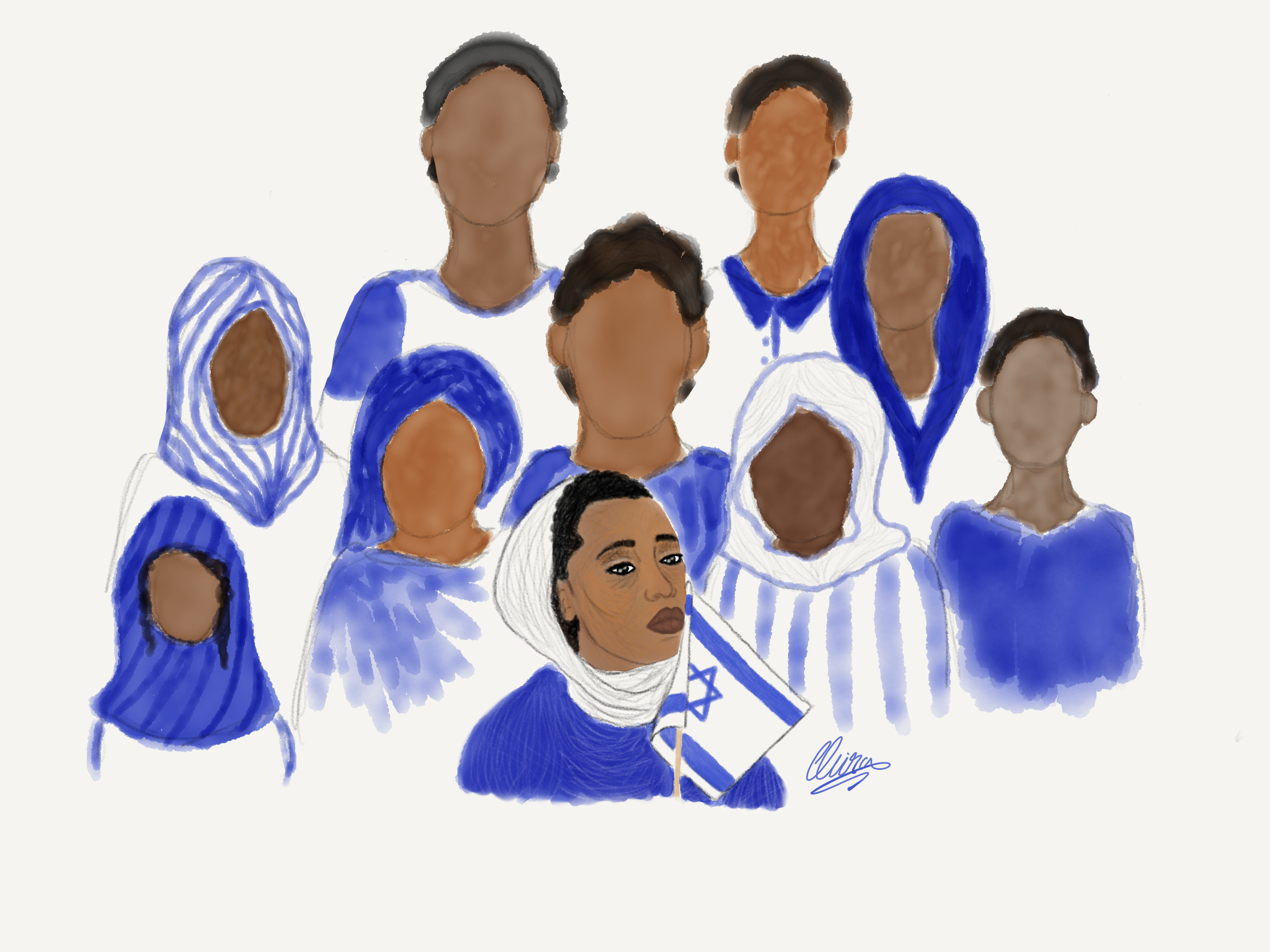By Zuzanna Mietlinska
Ethiopian Jews have a 2000 years history of living in exile, outside the borders of Israel. Despite the pogroms (violent repression of ethnic/religious groups), forced conversions and many other forms of persecution, they have maintained their culture and religion throughout the centuries under the name ‘Beta Israel’. Today, their dream of becoming citizens of Israel came true. However, every dream has its dark side: the group is now regularly facing racism and social exclusion, not always being welcome in the Holy Land. In this article, I would like to familiarize the readers with this unknown, or overlooked, plight of Ethiopian Jews.
The Cultural Shock
During the 1980’s and 1990’s, Ethiopia faced many challenges that significantly affected the people. Most notably, civil war and ensuing famine decimated the Ethiopian population. This was when the Israeli government decided to step in and create what was called the Operation Moses (1984) and Operation Solomon (1991) in which thousands of Ethiopian Jews were moved to the Holy Land. Similar to aliyah immigrants, the Beta Israelis were also under absorptions plans to successfully integrate them into their new society. They lived in integration centers for over 12 months where they were given free housing as well as health care and were taught, for example, how to keep up with modern technology. Before, most Ethiopians had not been vaccinated and were unaware of technological achievements such as gas stoves, cutlery or refrigerators. There are short clips preserved on film, where some Ethiopian women thank God for a working washing machine. Thus, it can be easily stated that the change from subsistence economy to industrialized society was a big step and a cultural shock for many of Beta Israel newcomers.
The Ineffective Governmental Policy
Unfortunately, the immigration Master Plans carried out were mostly proven to be ineffective at first. According to a 1999 report by Israel’s Ministry of Immigrant Absorption, over three-quarters of Ethiopian Jews could not read or speak in Hebrew, and were thus ill-prepared for the work environment. Many of them became cleaners, housekeepers and waste collectors because they lacked certain skills to keep better-qualified jobs. Large-scale school dropout percentage has also become a significant problem. Ethiopians who sought asylum to get a better future often fall into the vicious cycle of illiteracy, poverty and crime. Especially as a result of the ghettoizing areas to which they were moved into. In culmination of all of these things, a wave of anger and disappointment brought protestors on the streets.
The Police Violence
Despite the existence of programs to avoid discrimination against Black Jewish population in Israel, many encountered different forms of social injustice and exclusion. The hardships of integration for Ethiopians included having their ‘Jewishness’ undermined due to pre-rabbinic customs. Perhaps even more upsettingly, there were (and still are) many incidents of police brutality against Ethiopians and other dark-skinned minorities. The important case of Damas Pakedeh was illustrative of this fact. The IDF (Israel Defense Forces) soldier was attacked abruptly and without reason by a nearby policemen and, ironically accused of harassing the uniformed services. The entire incident was caught on tape. The true victim, Pakadeh, believes that the ruction was racially-motivated and like many others, he was “unfairly targeted” and “treated harshly without a cause”. Due to the lack of protection and initiation of brutality exhibited by the police, a second wave of protests was initiated.
The Petah Tikva Schools Controversy
In 2009, three semi-private Haredi schools refused admission to Beta Israel students, allegedly on the basis of their ethnicity. This sparked massive controversy in the country, and the Prime Minister Benjamin Netanyahu called the incident “a moral terror attack”. The government admitted that the school’s policy of discrimination was not an exception and that similar incidents had happened in the past. As a response, it was decided that a special school would be allocated for the enrollment of children from less privileged parts of the society. This only proved to be a more controversial solution to a complex issue.
The Depo Provera Prescription
Depo Provera is an intramuscular injection aimed to be, among other things, a contraceptive. Starting in Ethiopia and being continued in Israel, it was given to Ethiopian Jewish women on an enormous scale. The concerning problem is that the medication was given to patients without their knowledge or consent. When female fertility among the Beta Israel decreased almost by 50% in the last few years, frightening facts were revealed. It became clear that, despite making up only 1% of the country’s population, Ethiopian Jewish women constituted over 60% of the patients to whom the contraceptive injections were given. Some of them thought that the drug was meant to prevent flu, without the knowledge that it inhibited ovulation. They were also widely unaware of Depo Provera’s possible side effects: heavy headaches, depression and insomnia to name a few. Instances of blackmailing were uncovered: women who refused to take their dose of Depo Provera were threatened with their healthcare program and immigration process being constricted. Eventually, the Israeli government started to investigate the phenomenon and “instructed gynecologists not to prescribe the drug if there is a suspicion that the patient does not fully understand the drug’s functioning”.
All of these cases show that separatism on the basis of socio-economic background is a fact, not a fabrication. Unfortunately, tens of thousands of Ethiopian Jews, among others, are reminded of this fact daily. There is little hope, however, that the ongoing protests and street revolts would actually change anything in the nearest future.
Sources:
http://news.bbc.co.uk/2/hi/africa/524662.stm
https://www.jpost.com/Israel/Deal-reached-on-Petah-Tikva-Ethiopian-olim
https://www.haaretz.com/1.5213453
https://www.theguardian.com/world/2013/feb/28/ethiopian-women-given-contraceptives-israel
https://www.doz.pl/leki/p3603-Depo-Provera
Edited by Ayse Mısırlıoğlu
Artwork by Chira Tudoran

